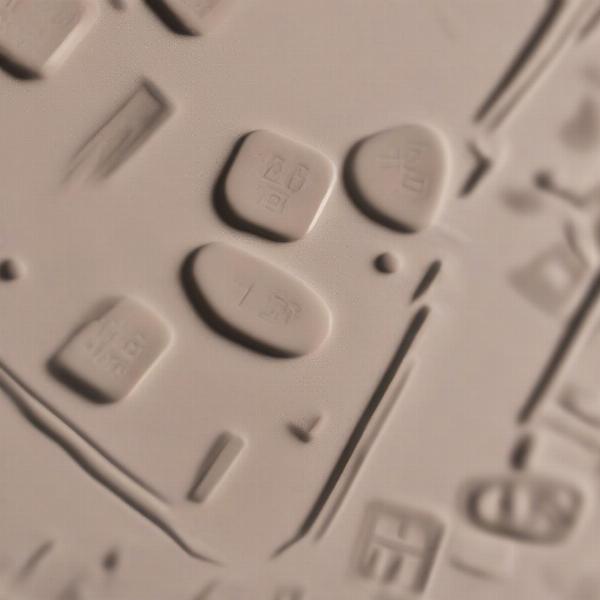Synulox tablets are a commonly prescribed antibiotic for dogs, used to treat a variety of bacterial infections. Understanding how Synulox works, its proper usage, potential side effects, and important considerations is crucial for responsible pet ownership. This guide provides a comprehensive overview of Synulox for dog owners, offering practical advice and insights for ensuring your furry friend’s health and well-being.
Understanding Synulox
Synulox, also known as amoxicillin/clavulanate potassium, is a broad-spectrum antibiotic combining two active ingredients: amoxicillin and clavulanic acid. Amoxicillin works by inhibiting bacterial growth, while clavulanic acid protects amoxicillin from being broken down by certain enzymes produced by bacteria, thus enhancing its effectiveness. Synulox is effective against a wide range of bacterial infections, including skin infections, urinary tract infections, respiratory infections, and wound infections. It’s important to remember that Synulox is not effective against viral or fungal infections.
 Synulox tablet for dogs
Synulox tablet for dogs
When is Synulox Prescribed?
Why would a vet prescribe Synulox for my dog? Synulox is typically prescribed when a bacterial infection is suspected or confirmed. Common scenarios include:
- Skin infections (abscesses, pyoderma)
- Urinary tract infections (UTIs)
- Respiratory infections (pneumonia, bronchitis)
- Wound infections (bites, surgical site infections)
- Ear infections (otitis externa)
Your veterinarian will perform a thorough examination and may conduct diagnostic tests (like blood work or cultures) to determine the appropriate course of treatment.
Administering Synulox to Your Dog
How do I give my dog Synulox? Synulox tablets are usually given orally, with or without food. Some dogs readily accept the tablet, while others might be more reluctant. If your dog refuses to take the tablet directly, you can try hiding it in a small piece of cheese, meat, or a pill pocket. It’s crucial to administer the full prescribed course of Synulox, even if your dog’s symptoms improve before the medication is finished. Stopping the medication prematurely can lead to antibiotic resistance. Always follow your veterinarian’s instructions regarding dosage and frequency.
Potential Side Effects of Synulox
While Synulox is generally safe for dogs, some potential side effects can occur. These include:
- Vomiting
- Diarrhea
- Loss of appetite
- Allergic reactions (such as hives, facial swelling, or difficulty breathing)
If your dog experiences any of these side effects, contact your veterinarian immediately. Severe allergic reactions are rare but require immediate veterinary attention.
Important Considerations When Using Synulox
- Never administer Synulox without a veterinarian’s prescription.
- Inform your vet about any other medications your dog is taking.
- Store Synulox tablets in a cool, dry place, away from direct sunlight.
- Keep Synulox out of reach of children and other pets.
- Do not use expired medication.
- Pregnant or lactating dogs should only receive Synulox under the strict supervision of a veterinarian.
Conclusion
Synulox can be an effective treatment for bacterial infections in dogs when prescribed and administered correctly. Understanding its uses, potential side effects, and important considerations is essential for responsible pet ownership. Always consult your veterinarian for diagnosis and treatment recommendations. Never self-medicate your dog.
FAQ
- Can Synulox be given with food? Yes, Synulox can be administered with or without food.
- What should I do if my dog vomits after taking Synulox? Contact your veterinarian for advice.
- How long does it take for Synulox to start working? You might see improvement within a few days, but always complete the full prescribed course.
- Can Synulox be used for cats? While similar medications exist for cats, never give your cat medication intended for dogs.
- What happens if I miss a dose of Synulox? Give the missed dose as soon as you remember, and then continue with the regular schedule.
- Can I crush Synulox tablets? Yes, you can crush the tablets and mix them with food if your dog has difficulty swallowing them whole.
- Is Synulox safe for all breeds of dogs? Generally, yes, but discuss any specific breed concerns with your vet.
About ILM Dog
ILM Dog is a leading online resource dedicated to providing dog owners worldwide with reliable and practical information on all aspects of dog care, including breed selection, health and medical care, training, nutrition, grooming, and product recommendations. We strive to empower dog owners with the knowledge and resources they need to ensure their furry companions live long, healthy, and happy lives. For expert advice and personalized recommendations, contact us at [email protected] or +44 20-3965-8624.